Education
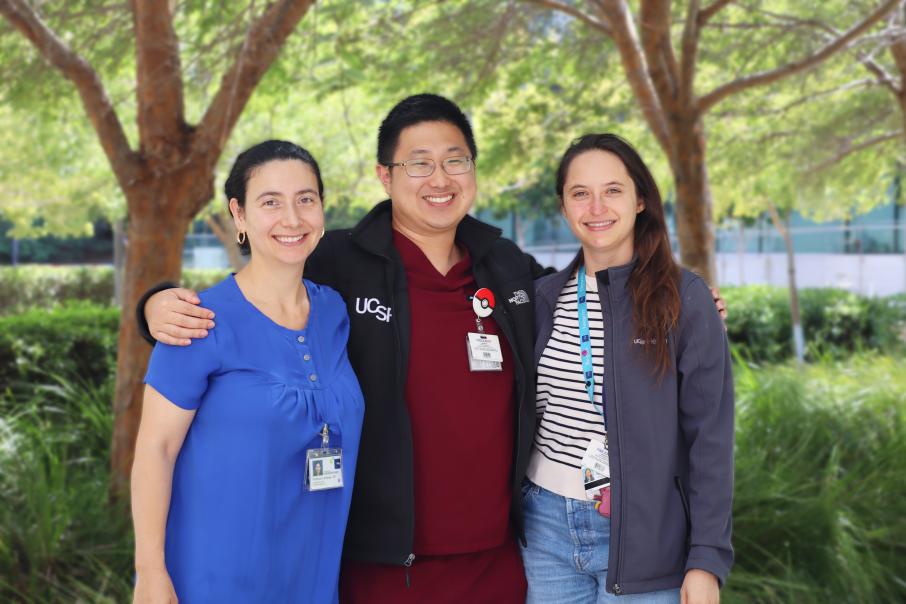
The Pediatric Nephrology Fellowship at UCSF has been training academic leaders since 1966, making it one of the oldest of its type in the country.
The program has an established record of producing successful independent investigators in clinical research, translational research, and basic science. We offer comprehensive clinical training in all aspects of pediatric nephrology, including acute kidney injury, chronic kidney disease, hypertension, electrolyte disorders, dialysis, and kidney transplantation.
Skip to Section:
About the Program
 The Pediatric Nephrology Fellowship is a three-year ACGME-accredited training program. The program aims to train the next generation of Pediatric Nephrologists with aspirations to become leaders in the field of nephrology by providing exemplary clinical care and advancing science to better serve our patients with kidney disease.
The Pediatric Nephrology Fellowship is a three-year ACGME-accredited training program. The program aims to train the next generation of Pediatric Nephrologists with aspirations to become leaders in the field of nephrology by providing exemplary clinical care and advancing science to better serve our patients with kidney disease.
Fellows are trained under the mentorship of world leaders in nephrology, transplant, endocrine and skeletal biology. Our faculty perform clinical, translational, and basic science research and have successfully published in impactful peer-reviewed journals. Fellows learn from these leaders in bone and mineral metabolism, chronic kidney disease, transplantation, and drug discovery.
The UCSF Division of Pediatric Nephrology is a Center of Excellence in the care of children with kidney diseases. We provide state of the art medical treatment for rare and common kidney disorders, participate in national and international clinical trials, and conduct basic science research in drug discovery to treat kidney disease.
We serve a large and diverse pediatric population in Northern California, and often see patients from parts of Nevada and Hawaii.
How to Apply
Applications are processed through the Electronic Residency Application Service (ERAS).
For questions regarding the fellowship program please email Fellowship Program Directors Drs. Farzana Perwad and Erica Winnicki.
Instructions for completing the ERAS application can be found on the ERAS website. The following items are required:
-
Personal statement of your academic and career goals, previous research background/training (if applicable).
-
USMLE scores and medical school transcripts.
-
Three letters of recommendation (from your residency program director and two other faculty who have worked closely with you during residency or in subsequent years post-graduation).
Note: We offer a combined adult/pediatric nephrology fellowship four-year program. The application is submitted to the adult Nephrology Fellowship Program. Please inform the Fellowship Program Directors Drs. Farzana Perwad and Erica Winnicki if you are interested in this pathway.
Visas
Questions about visas should be directed to the fellowship program directors.
-
We accept J1 and H1B visa transfers.
-
We will consider sponsoring new J1 visa applications for selected candidates.
Curriculum
Clinical
We have a large clinical practice with a diverse patient population that provides robust clinical training to ensure trainees build the expertise and skillset to provide excellent care in pediatric nephrology.
At our inpatient consultation services, we provide acute and chronic hemodialysis and peritoneal dialysis, and offer continuous renal replacement therapy (CRRT) for cardiac, pediatric and neonatal patients in the ICU. We also manage the care of acute and chronic kidney disease, hypertension, glomerulonephritis, and electrolyte/acid-base disorders.
In partnership with the UCSF Kidney Transplant Program, fellows learn to manage the care of single and double organ (liver-kidney, heart-kidney) transplant patients in the perioperative period.
Clinical rotations include:
-
Inpatient nephrology consultation service at UCSF Benioff Children’s Hospital San Francisco at the UCSF Mission Bay campus.
-
Outpatient chronic hemodialysis and peritoneal dialysis.
-
Outpatient continuity care clinic at UCSF Mission Bay campus.
-
Elective rotations in pathology, urology, rheumatology, transplant, and dialysis.
Fellows alternate between high intensity inpatient rotation with elective rotations and research time to maintain a healthy work-life balance and general well-being.
Didactics
The main didactics offered to fellows are:
-
Renal Grand Rounds
-
Fellow Didactic Series
-
Rheumatology Urology Nephrology (RUN) Conference
Additional optional didactics include Kidney Pathology Case Conference, Kidney Transplant Nephrology Conference, and Acid/Base/Electrolyte Case Conference.
Research
The fellowship program is supported by a NIH-sponsored combined adult and pediatric training grant for fellows interested in an academic career.
Years 2 and 3 of fellowship include 80% protected time for research and scholarly activity. Our fellows have an excellent record of publications during fellowship and a history of success with job placement in academic medicine after fellowship.
Eligible clinical research fellows on the training grant can receive tuition support for select degrees: MAS degree (clinical research) from the Department of Epidemiology and Biostatistics at UCSF or an MPH degree from UC Berkeley.
Fellow Mentoring Program
The Department of Pediatrics created a centralized fellowship training program including a Scholarship Oversight Committee (SOC) to provide comprehensive and structured supervision of scholarly activity for all subspecialty fellows.
The SOC, in conjunction with the trainee and program director, determines whether a specific scholarly activity meets the guidelines set by the American Board of Pediatrics.
The Department of Pediatrics also organizes Fellows’ College events that focus on career advancement, research, education and quality improvement to meet individual academic interests and ensure success in fellowship training. Learn more about the SOC and Fellow’s College here.
Fellow Benefits
The UCSF Office of Graduate Medical Education (GME) provides a variety of resources to support residents and fellows. These include educational opportunities, events such as Grand Rounds, a residents and fellow's council, and a trainee incentive program. You can learn more on the UCSF GME website.
Housing
Applicants can apply for UCSF subsidized housing at multiple sites across San Francisco as soon as the National Resident Matching Program (NRMP) rank list is published.
There are no application fees, security deposits or credit checks. UCSF can help you find your new home at affordable rates.
Salary and Benefits
Our salary is competitive with other academic institutes in the Bay Area, with annual cost of living adjustments and bonuses. Fellows are entitled to 4 weeks of vacation per year.
-
The total compensation package is $101,017 for PGY4 fellows.
-
Housing allowance is provided by UCSF and included in the annual salary.
-
Education reimbursement: $2,000 per fellow per year for educational expenses (such as books and conferences).
-
Medical license reimbursement: for renewal of medical license and examinations.
-
Annual bonus for quality improvement (QI) project completion up to $1800 provided by UCSF Health.
-
Maternity/Paternity Leave: 4 weeks of leave allocated.
-
A computer and iPhone for clinical duties will be provided by the Division.
Meal Cards
Fellows on clinical rotations receive meal cards for $300 a month. Meal cards can be used in all hospital cafeterias and nearby participating vendors.
Wellness
UCSF Fellows get 40% off the dual site monthly fee and $0 Enrollment for UCSF Fitness and Recreation Membership.
The Ginger app offers confidential, on-demand emotional and mental health support for life challenges through coaching via text-based chats, self-guided activities, and video-based therapy and psychiatry. Coaches are available to chat 24/7, 365 days per year. Private video sessions with a therapist or psychiatrist are available outside of business hours on evenings and weekends. You may also visit the Virtual Behavioral Health webpage for additional information.
Residents and fellows who are enrolled in UC health insurance, and their dependents age 18 and older, will have unlimited access to Ginger’s coaching services and self-guided activities, as well as up to 15 virtual therapy sessions per plan year (July 1 through June 30).
Additional well-being resources can be found here.
Childcare
Four centers are available at multiple sites across UCSF. Fellows and other trainees receive the highest priority for childcare openings.
The largest childcare center in San Francisco (296 children) is located on the UCSF Mission Bay campus adjacent to UCSF Benioff Children’s Hospital San Francisco.
Transport Vouchers
Free shuttles provided by UCSF operate between campuses and connect UCSF housing to campus sites.
Commuter Benefits are available to help you pay for your commute to and from work using pre-tax dollars, which saves you money on your taxes each year. You can use commuter benefits for public transit (Muni, BART, Caltrain, ferry), rideshare (carpool or vanpool), and parking expenses.
UCSF Health offers a Taxi Voucher Program to ensure that residents and clinical fellows can get home safely after working long hours.
Program Leadership
Program Director
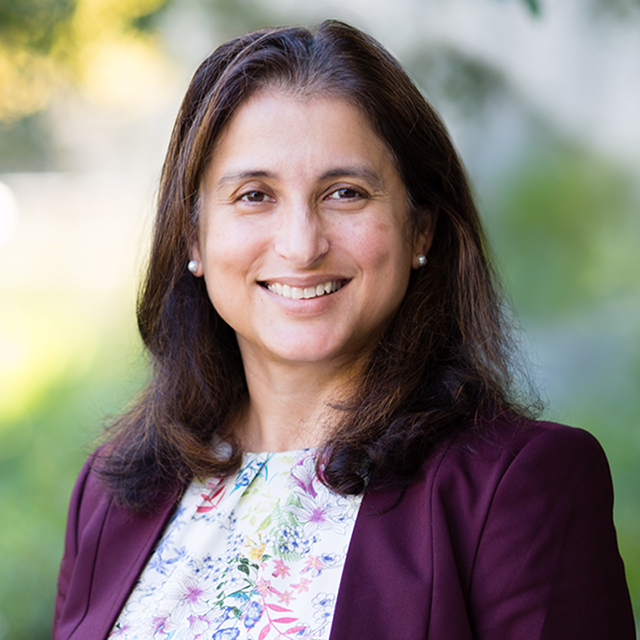
Farzana Perwad, MD
Professor of Pediatrics
[email protected]
Associate Program Director
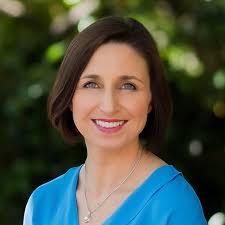
Erica Winnicki, MD
Associate Professor of Pediatrics
[email protected]
Program Manager
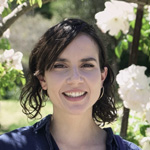
Natalie Maria
Education Program Manager
[email protected]
Current Fellows
Rebecca Lendway, MD
Training Period: 2025-2028
Medical School: New York Medical College
Residency: Stony Brook Children’s Hospital
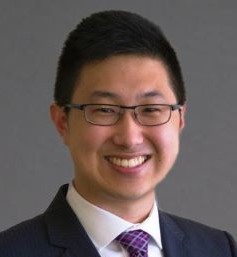
Michael Xi, MD
Training Period: 2025-2029
Medical School: California Northstate University
Residency: Kaiser Oakland Pediatrics
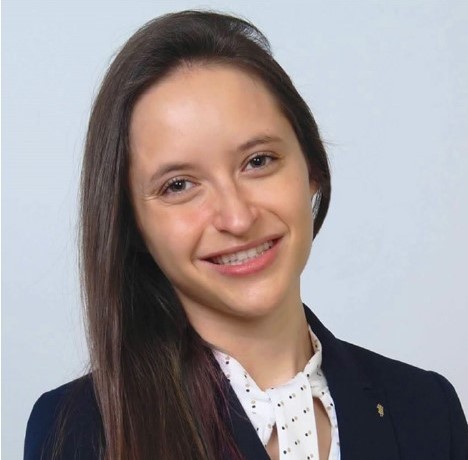
Eva Glenn Lecea, MD
Training Period: 2023-2026
Medical School: Universidad Autonoma de Baja California
Residency: Nicklaus Children’s Hospital
